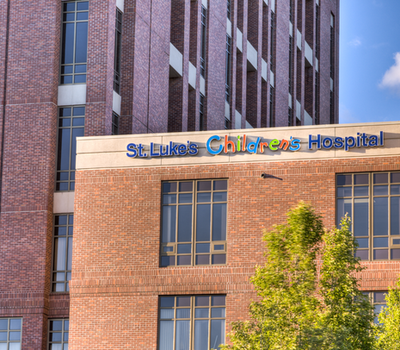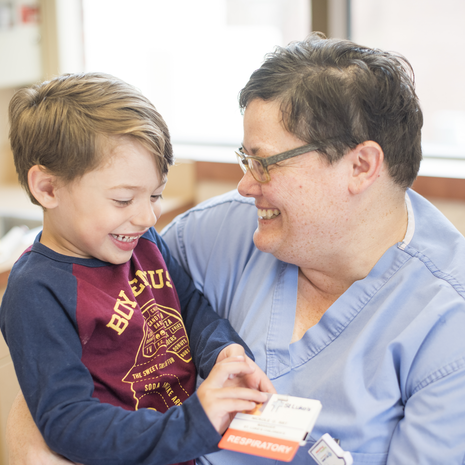St. Luke's Children's Visitor Policy
To support the safety of our patients, employees, and providers, St. Luke’s Children's Hospital has adjusted our visitor policy. Learn more
About St. Luke's Children's Hospital: Boise
Your child's care is our top priority at St. Luke's Children's Hospital, the only children’s hospital in Idaho. More than 150 skilled pediatricians and pediatric specialists work with referring physicians from around the region to provide high quality care. We have a staff of over 400 nurses, therapists, and other dedicated pediatric caregivers.
We believe that all children should have access to the highest quality health care services available, regardless of their condition or their family's a...
Related Specialties
Our Specialties

Focused Critical Care
The largest and most experienced Pediatric Intensive Care Unit in Idaho, dedicated to saving lives and protecting young patients.

Evidence-Based Care
We apply advanced technology, procedures, and care practices tailored to young patients to get the best recovery results.

Leading Cancer Expertise
St. Luke's Children's Hospital and St. Luke's Cancer Institute are partners in Idaho's only pediatric cancer and hemophilia programs.

Newborn Intensive Care
Expert, compassionate care for fragile infants and their families, ensuring your baby gets the best start in life.

Comprehensive Support
We help you navigate all aspects of your child's recovery, including the physical and emotional needs of your child and family.
Top Surgeons
Our team includes the most experienced surgeons in the region for infants, children, adolescents and young adults.

Trauma Accreditation
Idaho's only pediatric trauma center for evaluation and treatment of children who have experienced a traumatic injury.









